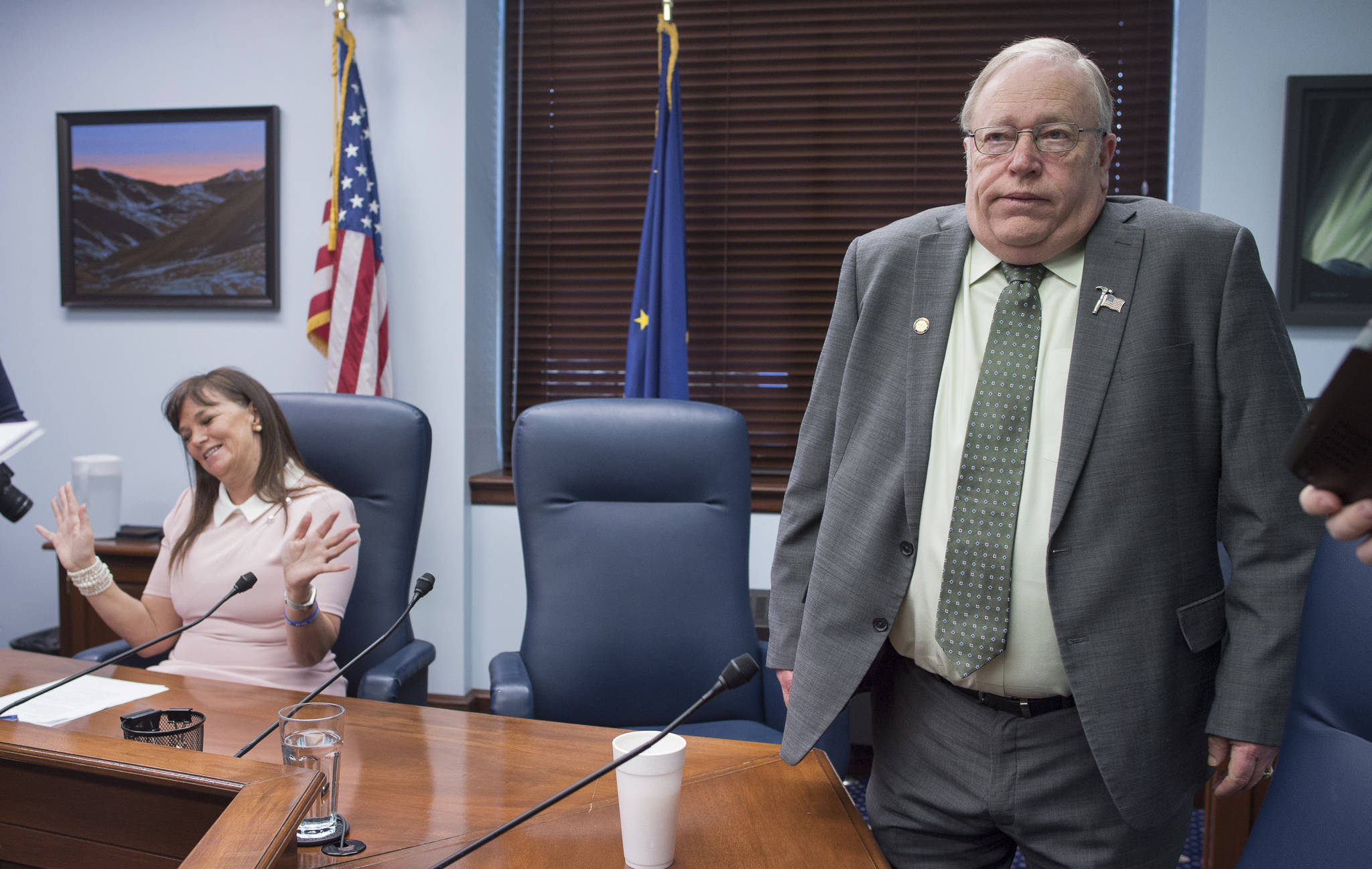Four days after narrowly approving a budget amendment that boosts the Alaska Permanent Fund Dividend, the Alaska House of Representatives remains without the votes to advance the state’s operating budget.
The deadlock is expected to continue into next week as lawmakers leave the Capitol for the Easter weekend. At the end of Thursday’s regular floor session, House Majority Leader Chris Tuck, D-Anchorage, adjourned the House until Friday morning.
Speaking in a press conference Thursday morning, House Minority Leader Charisse Millett, R-Anchorage, said the 18-member Republican House Minority is unwilling, thus far, to support the budget.
“For us, right now, the budget is too large for our members to vote for. It doesn’t take into account our ideas,” she said.
House Minority Whip Mike Chenault, R-Nikiski, said the House Majority’s leadership has reached out to members of the minority, but only limited conversations have taken place about getting minority support for the budget.
Those conversations started Tuesday, one day after a deeply divided House voted 21-19 to boost the Alaska Permanent Fund Dividend by restoring the traditional formula.
That increased the expected dividend from $1,250 to about $2,700. (That amount must be confirmed by the Senate and the governor.)
Among the 21 lawmakers voting “yes” were 11 minority members and 10 majority members. (Twenty-one votes is the bare minimum majority in the 40-person House.)
While members of the minority might be willing to approve more spending on dividends, they’re not willing to support more spending on government services, such as transportation, education, schools or health care.
Chenault and Millett pointed out that the budget proposal being considered by the House is larger than the one approved by lawmakers last year.
Meanwhile, the ranks of the House Majority remain divided because the money to pay for the dividend increase will come out of the Permanent Fund, and lawmakers are also looking to pay for government expenses from the fund.
The more money used from the fund on the dividend, the less money available for other things, unless the Legislature approves a new tax — something the Alaska Senate Majority has rejected.
“We were thinking there might be consensus today on a House fiscal plan, but there still isn’t,” said nonpartisan Legislative Finance Director David Teal in a Thursday-afternoon hearing of the House State Affairs Committee.
Last year, when the Legislature failed to agree upon an operating budget until late June, the House passed the state operating budget to the Senate for consideration on March 24. Things are moving even more slowly this year.
Asked whether trouble now could mean smoother votes later in the session, Chenault and Millett were divided.
Millett said unequivocally “yes,” that compromise now with the minority would ease votes later on in the session.
Critically, while passing a proposed budget requires 21 votes, actually paying for it with the Constitutional Budget Reserve (as is expected this year) requires 30 votes. That will require minority support in the House.
Compromise now will make that later compromise easier, she said.
Chenault disagreed. The Senate must still put its stamp on the budget, and there’s no telling if something acceptable today will be acceptable in another month.
“Things can change,” he said.
• Contact reporter James Brooks at jbrooks@juneauempire.com or 523-2258.

